Dehydration occurs when you use or lose more fluid than you take in, and your body doesn't have enough water and other fluids to carry out its normal functions. If you don't replace lost fluids, you will get dehydrated.
Anyone may become dehydrated, but the condition is especially dangerous for young children and older adults.
The most common cause of dehydration in young children is severe diarrhea and vomiting. Older adults naturally have a lower volume of water in their bodies, and may have conditions or take medications that increase the risk of dehydration.
How often is it, that even after drinking multiple glasses of water, you feel unsatisfied? Do you feel that you have never-ending thirst? Do you always have a dry tongue and throat? If yes, then you might be having a case of Dehydration. Dehydration is widespread yet not very much acknowledged. Dehydration is the key to the betterment of your health. Every doctor, whether it be a gynaecologist, cardiologist, dermatologist, or nutritionist, says that water can make or break your body.
1. What Is Dehydration?
2. Causes Of Dehydration
3. Recognising Symptoms Of Dehydration
4. Cure For Dehydration
5. Preventive Tips For Dehydration
6. Home Remedies for Dehydration
7. FAQs On Dehydration
What Is Dehydration?

Water is a critical element of the body. Every living being needs water to survive, and if they don't get enough water, they start dehydrating. Dehydration occurs when the amount of water leaving the body is higher than the amount being taken in, and your body doesn't have enough water and other fluids to carry out its normal functions. We lose water every second of every minute when we breathe, sweat, or pee. It's a sign that you're dehydrated when you're thirsty.
Dehydration is not just about losing water, it's also about losing electrolytes, such as salt and potassium from your body, which helps your body breathe, move, talk, and do all the other things it needs to do to stay up and running.
Dehydration is not just about losing water, it's also about losing electrolytes, such as salt and potassium from your body, which helps your body breathe, move, talk, and do all the other things it needs to do to stay up and running.
Causes Of Dehydration

Your breath, skin, and body temperature may be telling you you're running low on water. Your body regularly loses water because of various reasons, thus causing dehydration if the water is not replaced. These various
causes are:
causes are:
Sweating: Sweating is one of the primary forms of losing water at regularity.
Frequent Urination / Diarrhea: The most common cause of dehydration and related deaths. The large intestine absorbs water from food matter, and diarrhoea prevents this from happening. The body excretes too much water, leading to dehydration.
Vomiting: This leads to the loss of fluids and makes it difficult to replace water by drinking it.
Fever: In fever, your body loses fluid through your skin's surface in an attempt to lower your temperature. Often, fever can cause you to sweat so much that if you don't drink to replenish, you could end up dehydrated.
Diabetes: High blood sugar levels cause increased urination and fluid loss resulting in dehydration.
Recognising Symptoms Of Dehydration
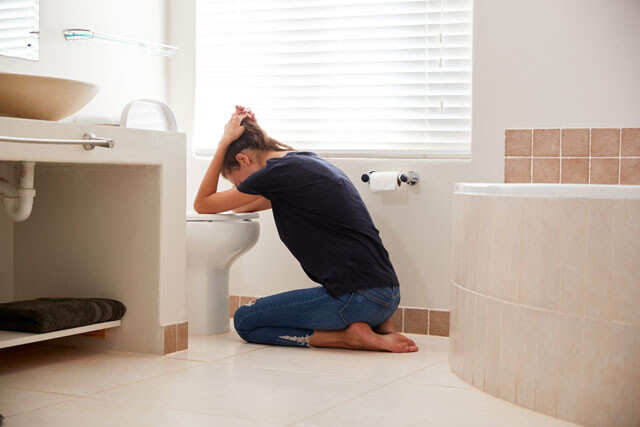
There are many different signs and symptoms to look for when dehydrated. Your body only needs to lose as little as 2% of its total water weight before the symptoms of dehydration start to appear.
Symptoms In Adults:

Apart from thirst, not peeing, or peeing less, not seating and muscle cramps, watch out for these:
Headaches And Dizziness: Mild dehydration can cause dehydration headache and trigger a migraine headache. Dizziness and lightheadedness are also signs of mild to moderate dehydration.
Bad Breath: In dehydration, the body stops making saliva, thus resulting in bad breath.
Poor Skin Turgor: It is when your skin takes longer to return to its original appearance after lightly pinching an area.
Fever And Chills: Fever is known to worsen dehydration. The higher the temperature gets, the more dehydrated your body becomes.
Sweet Cravings: The liver needs water to break down glycogen to release glucose. When you have dehydration, you start craving sweets because it helps the process of breaking down glycogen.
Poor Skin Turgor: It is when your skin takes longer to return to its original appearance after lightly pinching an area.
Fever And Chills: Fever is known to worsen dehydration. The higher the temperature gets, the more dehydrated your body becomes.
Sweet Cravings: The liver needs water to break down glycogen to release glucose. When you have dehydration, you start craving sweets because it helps the process of breaking down glycogen.
Symptoms In Infants And Children:
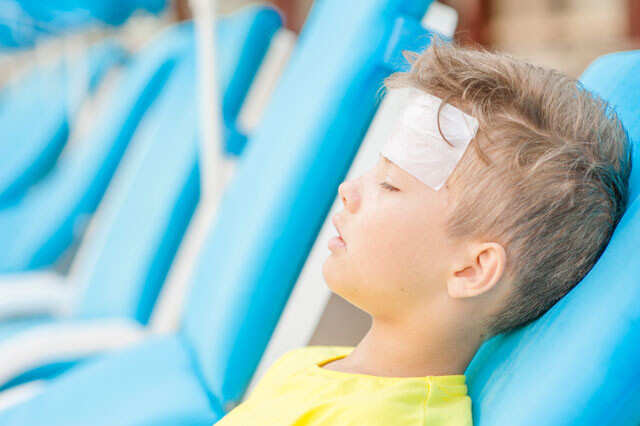
- Dry Mouth And Tongue
- No Tears When Crying
- No Wet Diapers For Three Hours
- Sunken Eyes And Cheeks
- Sunken Soft Spot On Top Of The Skull
- Listlessness Or Irritability
Cure For Dehydration

If you have mild dehydration, then you can just consume a lot of fluids. But, once it starts getting severe, you would need to take some significant steps, such as visiting a hospital.
Treatment Options For Adults
Once you start noticing early signs of dehydration, look for ways to replenish your body's water and electrolytes. Electrolytes help carry out many of the body's essential day to day cell functions.
Electrolyte Tablets: They allow you to replenish both the necessary electrolytes and water that your body needs for rehydration.
Electrolyte Powder: It's a quick and easy way to restore the body's fluids and electrolytes.
Electrolyte Drinks: electrolyte drinks boosts electrolyte and water replenishment.
IVs: IV is used when you are severely dehydrated. It supplies water and electrolytes directly to bloodstreams, which helps in faster recovery.
Treatment Options For Children
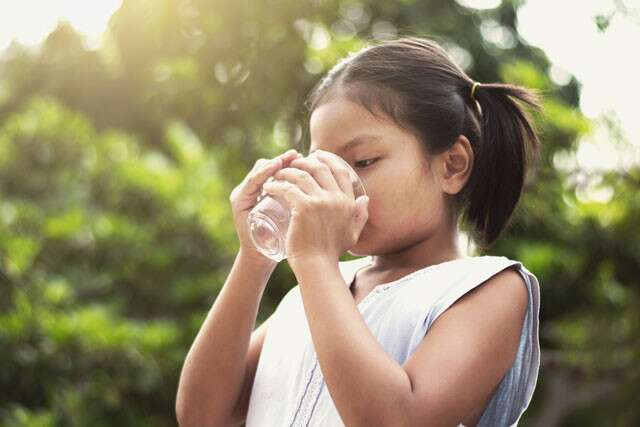
When it comes to children, it is essential to consult your doctor. But, if it's mild dehydration, the following can help in rehydrating:
- Water
- Low Sugar Electrolytes
Preventive Tips For Dehydration

Prevention is the most important treatment for dehydration.
- Drink a glass of water in at least 2 hours intervals.
- Include plenty of hydrating juices like watermelon and strawberry in your diet, especially before and after vigorous activity.
- Use an electrolyte sports drink if you workout or exercise for more than an hour.
- Avoid alcohol consumption as it increases dehydration.
- Quit smoking as it can cause dehydration in the long run.
- Wear lightweight and light-coloured clothing if you are working out or exercising outdoors.
- Follow a healthy diet with high water content foods such as cucumbers, yoghurt, papaya, and green salads.
- Consuming plenty of fluids and foods that have high water content (such as fruits and vegetables) should be enough for most people to prevent dehydration.
- Drink Sugar-Free Herbal Tea or Coffee.
Home Remedies for Dehydration
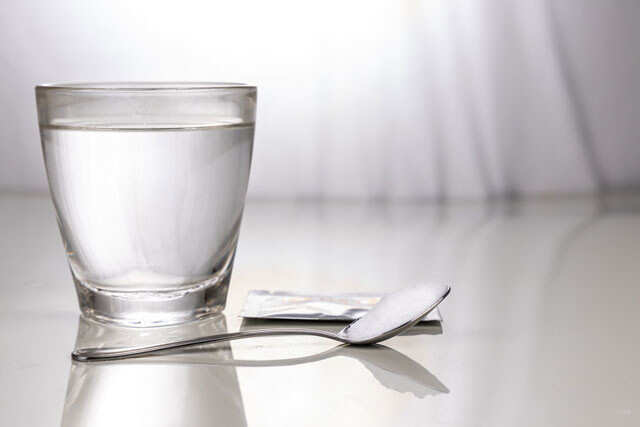
Homemade ORS
Consuming ORS is one of the best ways to replace the lost fluids in your body. This is because the glucose content of sugar used in ORS helps in increased uptake of sodium and water that is lost due to dehydration.
How to make it: Add 1/2 teaspoon of salt and six teaspoons of sugar in 4 cups of water. Mix until salt and sugar dissolve completely in the water. Drink this at least two times a day if you have mild dehydration and 1 litre if you have moderate dehydration.
How to make it: Add 1/2 teaspoon of salt and six teaspoons of sugar in 4 cups of water. Mix until salt and sugar dissolve completely in the water. Drink this at least two times a day if you have mild dehydration and 1 litre if you have moderate dehydration.
Lemon Water
Lemon water not only refreshes you but also helps you overcome dehydration by restoring the levels of potassium, sodium, and magnesium in your body.
How to make it: Squeeze half a lemon into one glass of water. To this mix, add 1-2 teaspoons of honey and consume it.
How to make it: Squeeze half a lemon into one glass of water. To this mix, add 1-2 teaspoons of honey and consume it.
FAQs On Dehydration

Q. What should we avoid drinking when dehydrated?
A. Keep in mind that not all beverages help with rehydration. Colas and sodas can make your dehydration worse and lead to further kidney-related dehydration problems. As refreshing as a cold beer might sound when you're exceptionally thirsty, you should avoid alcohol if you're trying to rehydrate.
Q. How long does it take to rehydrate a dehydrated body?
A. The time it takes to recover from dehydration depends on how dehydrated you are. If you are severely dehydrated, it's likely that you will be hospitalised and put on intravenous hydration for up to 24 hours to recover from dehydration, or until you're able to drink oral rehydration fluids yourself.
Q. Why does my body dehydrate so easily?
A. Dehydration is caused when people lose more body water than they take in. So it can be caused by disorders or problems that make people lose fluid, such as gastroenteritis with vomiting and diarrhoea, sweating profusely in hot weather, and uncontrolled diabetes.
Q. How can I hydrate myself quickly?
A. For most people, drinking water is the best way to stay hydrated and rehydrate. Other options include coffee, tea, milk, fruits, vegetables, and oral hydration solutions. Don't hesitate to speak with your healthcare provider if you're concerned about your or someone else's hydration status. Get care when you need it.
Q. Can stress and anxiety cause dehydration?
A. It's a self-perpetuating cycle: dehydration can cause stress, and stress can cause dehydration. When you're stressed, your adrenal glands produce extra cortisol, the stress hormone, and under chronic stress, your adrenal glands can become exhausted, and resulting in lower electrolyte levels.

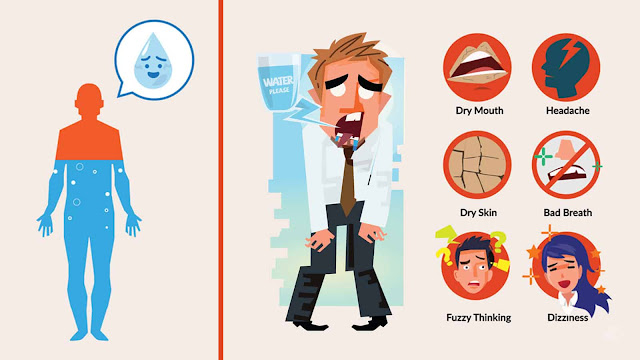























No comments:
Post a Comment